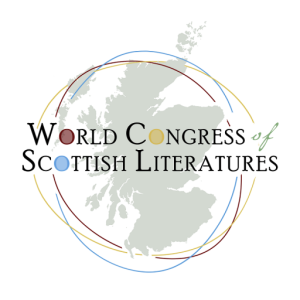 On 22–26 June 2022, the Third World Congress of Scottish Literatures was held at Charles University in Prague and welcomed around 150 delegates from all over the world.
On 22–26 June 2022, the Third World Congress of Scottish Literatures was held at Charles University in Prague and welcomed around 150 delegates from all over the world.
At the opening ceremony in the Karolinum, the oldest part of the university dating back to the fourteenth century, the delegates were welcomed by Dr Eva Lehečková, Dean of the Faculty of Arts, the organizers of the congress – Prof Martin Procházka and Dr Petra Johana Poncarová – and the Convenor of the International Association for the Study of Scottish Literatures, Prof Carla Sassi. The ceremony also featured a short poetry reading in Scots and Gaelic, by Matthew Fitt and Christopher Whyte, respectively.
The programme of the congress emphasised the European and global dimension of Scottish literature, including international inspirations and influences, translations, reception, and works of Scottish authors who have been active abroad. The congress also reflected the linguistic and geographical diversity of Scottish literature – with papers on Scottish literature in English, Gaelic, and Scots, ranging from Edinburgh and Glasgow up to the northern archipelagos of Orkney and Shetland. Beside panels on the most famous authors, such as R. L. Stevenson, Robert Burns, and Walter Scott, the programme featured a number of contributions focused on contemporary literature. Several sessions were devoted to Scottish women writers as well as to works dealing with nature, landscape, and ecology.
Keynote lectures were delivered by Prof. Angela Esterhammer, Prof. Joep Leerssen, Prof. Glenda Norquay, and Dr Christopher Whyte. Prof. Alan Spence, former Makar of the City of Edinburgh, delivered a plenary reading. The opening ceremony and selected lectures are available via the YouTube channel of the IASSL.
As part of the congress, the Jack Medal Awards for 2020 and 2022 were presented.
The programme also included a Scottish ceilidh dance, organised by the Prague-based Caledonian Club, and the launch of a bilingual exhibition “Czech-Scottish Relations”. Twelve panels introduce the relations between the two countries, their historical intersections, translations of Scottish literature into Czech, and achievements in the field of Scottish studies at the Faculty of Arts so far.